Overview
Are you thinking about migrating Marketing Automation or CRM platforms and wondering if it’s worth it?
Will your company/organization be better off in the long run if you migrate to a different Marketing Automation Platform (MAP) or CRM (Customer Relationship Management) platform? Is it worth the headache and expense?
The consensus answer in the expert community is ‘it depends‘, meaning there isn’t a one-size-fits-all answer since every organization has different needs and resources.
In this article I’ll dive into things for you to consider before making the jump from one platform to another. I’ll also provide a free download of our ‘Marketing Automation & CRM Platform Migration Checklist’ Google Sheet as a valuable resource to give you some help through your migration process should you choose to go that route.
Perhaps after reading this blog post I’ll help you decide if migrating is the right decision for you, or if you should focus on making your current platforms perform better and get closer to meeting your needs.
Why switch software?
Overall there is a general frustration and discontentment with MAPs. This somewhat also true, but to a lesser degree, with CRMs. That’s because every MAP/CRM platform has its strengths and weaknesses, pros and cons, and every business has different needs, and possibly for a lot of other reasons (as mentioned below).
For example, a platform that has robust features but still lacks in interface user-friendliness and usability, or lacks in decent integrations, may not work for you. Afterall, if the software is so clunky that no one wants to use it, or it doesn’t integrate well with the rest of your tech stack and processes, then maybe it isn’t a good fit. Usually knowing that sooner than later is better, even if you can’t act on it in the short term.
Main reasons why people consider switching MAP/CRM platforms:
- Lack of features compared to other products in the marketplace
- Poor integration between current CRM and MAP
- Poor integration between MAP/CRM and the rest of tech stack
- Have outgrown current platform and it is not customizable or scalable to current needs
- Platform costs have risen and not getting ROI from the platform
- Too complex for current needs
- Not user friendly so not well adopted
- Stakeholders are not getting the business intelligence via reports and dashboards they need
- Desire an all-in-one platform with marketing automation and CRM
- Not using the platform features to its potential so not realizing platform ROI
- Accumulated technical debt so want to start with clean slate
- Consolidating business units to a single solution
- New CMO/CTO wants what they are familiar with
- FOMO—fear of missing out on the new thing
- Convinced by someone that something else is better (i.e., vendor rep)
Is the grass greener on the other side?
Many organizations are frustrated and suffer from ‘the grass is greener on the other side’ syndrome. It’s a common issue that people are unhappy with their marketing automation tools in particular. There’s a good chance you’re looking at that list of ‘reasons why people consider switching’ above and thinking to yourself, “yeah, several of those issues apply, so we should migrate to a better solution”. Maybe that’s even why you are reading this article.
Everything has trade-offs
It is good to keep in mind that everything has trade-offs. Let me use an analogy… I recently sold my dual-sport motorcycle (meant for dirt and street). I sold it because it was pretty good on the dirt (leaned 75% dirt), but not so good on the street. Any any ride longer than 10 minutes was very uncomfortable. I eventually decided I wanted to do more street riding but not give up dirt riding.
Let me use an analogy… I recently sold my dual-sport motorcycle (meant for dirt and street). I sold it because it was pretty good on the dirt (leaned 75% dirt), but not so good on the street. Any any ride longer than 10 minutes was very uncomfortable. I eventually decided I wanted to do more street riding but not give up dirt riding.
So I purchased my latest motorcycle which is an ‘adventure’ type (shown below). It is decent on dirt and much better on the street than my former dual-sport. But it is still roughly a ’50/50′, geared 50% towards dirt riding and 50% towards street. Not really good at dirt or street, just ok at each.
Assuming I can only have (or want) one motorcycle, for me to be able to do both types of riding, compromises must be made on the type of motorcycle to own. For someone else maybe all they care about is having a good dirt bike or a good street bike fit for that purpose and they don’t want to make any compromise on one side of things or the other, so they buy just one motorcycle (or two) that meets their particular needs the best. To carry the analogy further, you may want a dirt bike but your CEO may insist on a street bike. In my analogy you may end up with an adventure type bike which is intended for combination of purposes which, in reality, if you switch platforms may actually be an adventure no matter which platform you choose.

dirt motorcycle
(you?)

street motorcycle
(your boss?)

adventure motorcycle
(where you might need to end up?)
A platform might be better at one thing that is really important to you but it might be worse at some different things that are important to other stakeholders. It comes down to what is most important to you, other stakeholders and the company as a whole, as well as your available resources.
If having an all-in-one platform is important to you then you may not get best-of-breed functionality in all areas. Perhaps someone else will be unhappy with the functionality important to them (I’m not picking on HubSpot here, just applying the general ‘Jack-of-all-trades’ principal to make a general point).
So understand what those trade-offs are, what compromises may be needed, and who it affects. Then consider the fact that you have already some investment in technology and training and process on a certain platform before jumping ship.
Many organizations migrate from one marketing automation or CRM platform to another, yet many remain unhappy and are not any more productive with their new platform. Some organizations have even switched platforms every few years thinking the next platform will solve many of their problems.
Does migrating platforms actually pay off?
There is the potential that migrating platforms could be a mistake for some organizations at their current size or stage.
Is the company better off and able to operate, scale, and serve their customers better after a platform migration? Or do many companies just carry over the same problems with them to the next platform?
Part of the problem may be that if your organization lacks good data collection (i.e., forms, data input, syncing rules), or your data is a mess, or you lack good segmentation, or you lack lead nurturing, or you lack good MQL or other processes, or leads are not followed up on by sales, or your staff isn’t well trained on how to use the software…and the list goes on…then you will carry those problems/issues over to the next platform and you won’t be any better off.
In fact you would have lost time and money migrating, perhaps many months later, only to find the answer to your problems is not in changing software platforms, but that other process related issues need to be addressed.
It’s usually a huge and costly initiative to migrate a software platform. So you’d better be sure that migrating is the best solution to meet your needs before going forward with a migration. The answer may instead be in optimizing the platforms you have and improving your processes and reporting.
Generally I believe you can take any top platform that is out there and make it work; bend it to your will as it were. Think about how can you use your current tech stack to better improve your situation, since it is likely you can make improvements.
For example…
Your current marketing automation platform can most likely do some cool stuff, maybe more than you think:
- Deep dives into lifecycle marketing
- Segmentation, personalization, personas, all the targeted stuff you hear about
- Good data collection
- Custom fields for tracking things like UTMs
- Automating things as opposed to manual
- Properly qualifying and triggering MQLs
- Utilize campaigns in a smart way so that you can track interactions through to revenue attribution reporting from your marketing efforts
Your current platform can probably do ‘the things’ but do you have some or all of those things in place? Much of that is process and having the right set up and is not platform dependent. Marketing automation is only as good as the process behind it and how you set it up (typically with some outside help from a consultant).
In many cases I do think it’s really not so much the platform that needs migrating, but fixing what you have. I think overall most any platform can achieve what you’re looking for with enough set up work, but there will be different costs involved to get there, so you’ll need to factor that in.
It’s more about getting those things right, getting the platform and processes set up well. And then I think any platform will hopefully pay for itself and do more of what you’re needing or expecting. And maybe eventually even if you do still decide to migrate, then replicating those processes on any other platform should go that much easier.
But what if I set up everything well and our current platform still isn’t working for me?
‘Is it worth the effort for the long run to not migrate at this time, to stick with what we have?‘ is another question.
Is your current platform going to meet your needs if you did everything well that your current platform is capable of, as opposed to it flat out just can’t meet your needs, right?
There are some things that your current platform is not going to do well. You’re going to have frustrations no matter what platform that you’re on.
But what’s the investment required to make it work for you? What’s it going to take to get there? What’s your pain threshold for sticking with what you have (versus a migration)? And are you going to be to use it day-to-day to meet your needs?
Sometimes migrating platforms makes good sense
Many organizations have reported via client feedback or Slack channels that migrating was a great decision, and they have no regrets in making the move.
For some, it may not have been a heavy lift to migrate, so the pay-off came quickly.
For others (I’d say most), migrating was a huge undertaking. The process was laborious, took much longer and cost much more than anticipated, and yet some of those same folks in the end are still glad they made the move. They’re playing the long game.
Of course in a year or two the platforms we know today will be much different, especially with AI changing the landscape of everything so fast. So the long game may change sooner than anyone anticipates. And it just may be a matter of timing for you, it might make sense to wait for the best window of opportunity, but maybe not just yet.
So in that sense it is good to be platform agnostic, meaning any platform should work if you invest in and have good processes and documentation, and any future migrations should go that much smoother. My advice is invest in processes and people (until AI makes us all obsolete!), and focus a little less on the specific platform.
Although it may be difficult to evaluate the true benefit, some organizations have been very happy they made the move to a new platform. Most say it is due to the new platform, not just migrating and starting fresh. Although sometimes that can really help too.
They claim the new platform has better integration or is easier to use and therefore well adopted. Some feel they are able to get better business intelligence through better reports and dashboards.
So again, ‘it depends’. Your mileage may vary.
Considerations before migrating marketing automation or CRM platforms
There is a lot for you and any key stakeholders to take into account before making the decision to migrate to another marketing automation or CRM platform.
Use our Marketing Automation & CRM Platform Migration Checklist below to make sure you have considered all of the possible issues and have everything sorted out before you make your decisions or take any concrete steps toward migration.
Marketing Automation & CRM Platform Migration Checklist
Business Considerations
✔ When do your current related contracts end? If you were going to migrate, how long are you going to keep paying for your current contract?
✔ Which stakeholders need to be involved?
✔ Are stakeholders ok with all new reports and dashboards?
✔ Will the new reports and dashboards provide the needed information?
✔ Does the new platform have the features you need now or you will grow into?
✔ Which MAP and/or CRM should you go with?
✔ When should we engage with a vendor (solution provider) or consultant to help with the migration?
✔ How long will the migration take?
✔ When should we start the migration?
✔ Will you need to run both new and old platforms in parallel (two concurrent platforms) for some limited time during your migration process? Or can you just ‘pull the switch’ to cut off one platform then ‘turn on the switch’ for the new platform?
✔ How many licenses are needed?
✔ What are hard platform costs compared to what you are paying now? If applicable, is there a non-profit or ‘startup’ discount?
✔ Is there a huge jump in costs if someone on your team imports or syncs thousands of new contacts?
✔ Can you get a no-cost or low-cost pre-production full-function trial version from your new vendor while you are setting up the new platform?
✔ What vendor or consultant should you use for your migration? 
✔ How much will migration cost for consulting?
✔ What is the break-even amount in terms of investment cost and long term revenue benefit?
✔ How much will migration cost in time lost for any business functions?
✔ What is the time required for break-even in terms of revenue benefit?
✔ When should your new contracts begin?
✔ Do you have one or more in-house expert admins lined up to manage the new platform?
✔ Set proper expectations. Do stakeholders realize that even if you take the opportunity to clean up some things during a migration, that there is usually not enough planning and prep to clean everything up and start with a really good setup? It may take more optimization and investment over time to meet their expectations.
Technical Considerations
✔ If your current MAP and CRM are integrated as one platform, are you migrating both?
✔ Does the new platform have deep integrations between CRM and MAP and other integrations you need?
✔ If migrating your CRM, how much sales activity will carry over to the new platform?
✔ How are marketing campaigns structured on the new platform compared to the existing platform?
✔ Are there separate business units you’ll need to consider transferring over?
✔ Are there custom objects that need to be considered?
✔ What are the known limits of the new platform?
Migrating Considerations
✔ When should you start the migration process so you’ll have enough time to switch over?
✔ How long should you allow for migration, and should there be phases like MVP then iterative optimizations?
✔ What should migration phase dates be?
✔ Do you have a hard cut-off (shut down) date on the old platform?
✔ What are your test plans?
✔ Do you need to create a sandbox or dev environment for testing before migration?
✔ Do you have enough time to perform the migration with your selected vendor?
✔ Data ETL (extract transform load): can you get all of your data out of your existing platform?
✔ Data cleansing: how much data cleansing and transformation is needed or practical before import into the new platform?
✔ Data transformation: how much data transformation is needed before import into the new platform?
✔ Data import: are you aware of data loss for what data won’t import into the new platform?
✔ What types of new reports and dashboards are needed? Do you have screenshot examples?
✔ Do you need to set up new data entry rules in the new platform to keep your data well structured?
✔ How many and which custom fields are needed?
✔ How many and which forms will need to be re-created? Do you have screenshot examples?
✔ Will you need an external solution for business intelligence reporting in addition to any new platform?
✔ How many pieces of form code will need to be updated on your website?
✔ How many and which email templates will need to be re-created?
✔ Is there dynamic content that will need to be re-created?
✔ Is there dynamic content in email templates, forms, or your website that will need to be updated?
✔ How many and which automations, workflows, or nurture flows will need to be re-created? Are there diagrams for these?
✔ Can you keep your current campaign structure or do you need to create new campaigns and campaign structure?
✔ Can you use the same user roles?
✔ Who is doing what in regards to migration? Have all of the required tasks been properly delegated?
✔ How much training will be needed on the new platform, and are there new procedures to train on?
Download our free 'Marketing Automation & CRM Platform Migration Checklist' Google Sheet!
Download our free 'Marketing Automation & CRM Platform Migration Checklist' Google Sheet as a valuable resource to give you some things to consider before making the jump, and a simple way to manage your progress during migration.
Feel free to "Make a copy" to make it your own to help you through your next platform migration.
2023 Top MAP/CRM platforms in the mid-market and enterprise space
Below is a list of some of the top mid-market and enterprise platforms. And for fun I’m showing the name changes…which goes to show how much the landscape changes, to my point above about being platform agnostic.
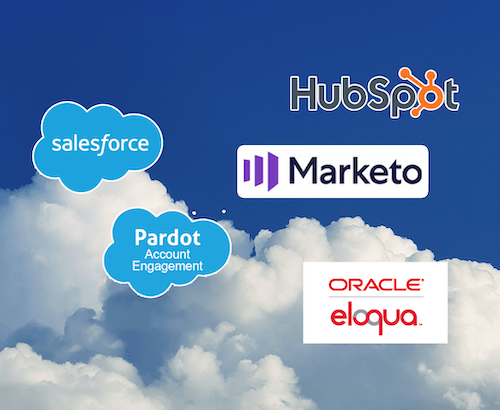
- Salesforce Sales Cloud
- Marketing Cloud Account Engagement
- formerly and for many of us still is Pardot
- Salesforce Marketing Cloud
- formerly ExactTarget
- HubSpot
- Marketo Engage
- formerly Marketo
- Oracle Eloqua Marketing Automation
- formerly Eloqua and Oracle Marketing Cloud
- Act-On
- Braze
- focus on mobile app integration
- Iterable
- geographic personalization within a 1-mile radius of your customer
- Customer.io
- multi-channel messages based on customer behavior
- Klaviyo
- SharpSpring
- newly renamed as “Lead Gen & CRM” Summer 2023 and then soon after reverted back to SharpSpring?
- ActiveCampaign
Conclusion
As you can see there is a lot to consider. The decision to migrate should not be taken lightly or done hastily, or in a vacuum. Since it is likely an extensive undertaking and a very impactful decision, all key stakeholders need to be involved as early as possible.
No marketing automation platform or CRM is perfect. I’ve found that most any top MAP/CRM platform combination today can achieve most of what organizations need if the platform and processes are properly set up and optimized, and people well trained.
It may be that changing software isn’t the best path forward, or perhaps for you it is. Like the old song by The Clash (had to look that one up):
“Should I stay or should I go“ by The Clash
Should I stay, or should I go now?
If I go, there will be trouble
And if I stay, it will be double
So ya gotta let me know
Should I cool it, or should I blow?
C’mon we know you were singing along!
Whether you stay or go you’ll likely need to invest in a consultant to create and implement a roadmap of requirements, who understands where you are today and where you want to be, who knows what the platform is capable of, who knows how to implement scalable processes so you get the desired results in the fastest time and that will enable you to grow to the next level.
If you would like some guidance on whether migrating platforms is the right solution for you, and to actually help you perform your migration, please get in touch.
As primarily a Pardot/Salesforce and HubSpot marketing automation and CRM agency, we have performed many successful marketing automation and CRM platform migrations. We can help you, too.
I’d like your input
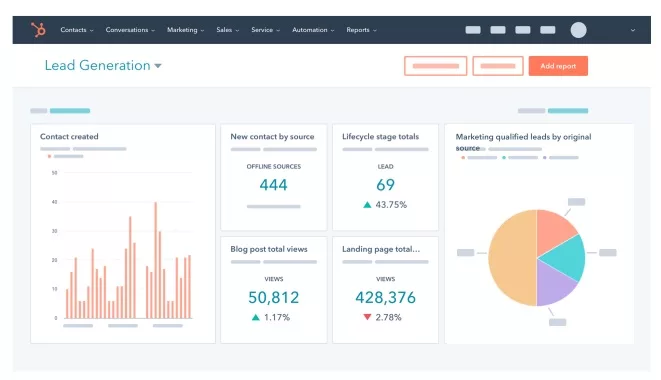
Sign up for HubSpot
Don't have HubSpot yet? Sign up for a free trial on the HubSpot website.
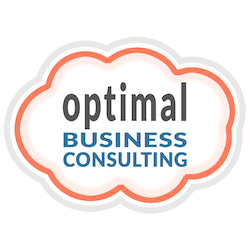
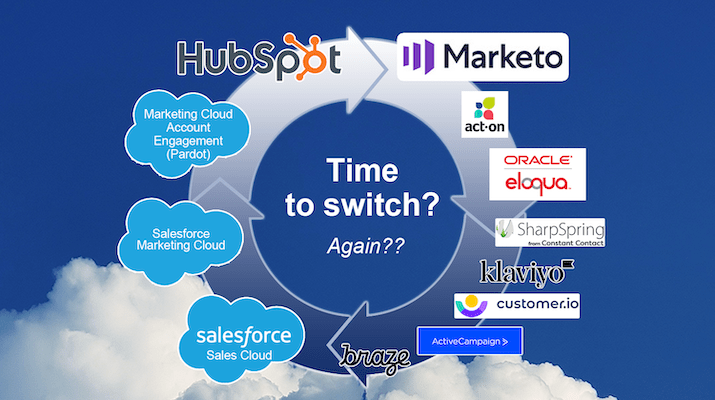
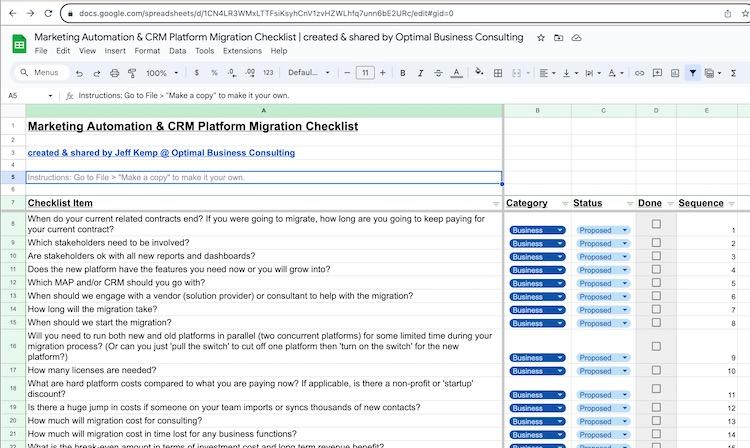



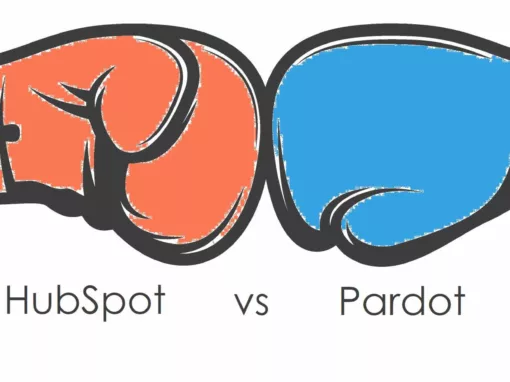
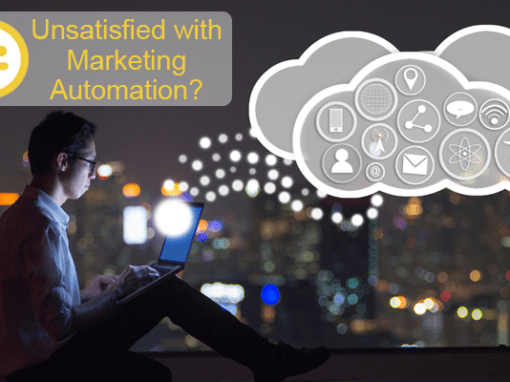

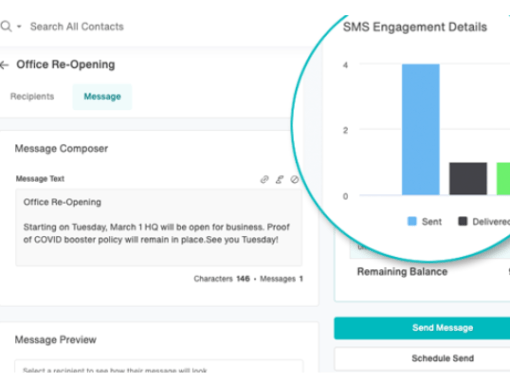
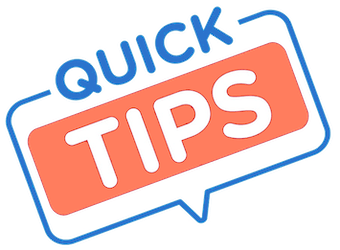

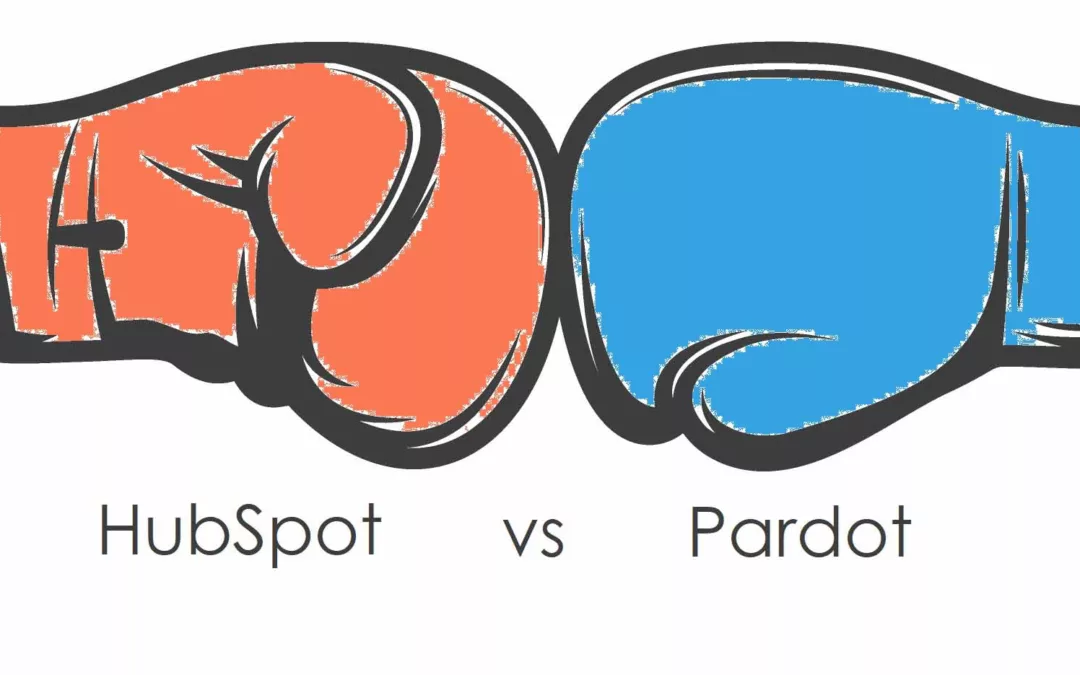

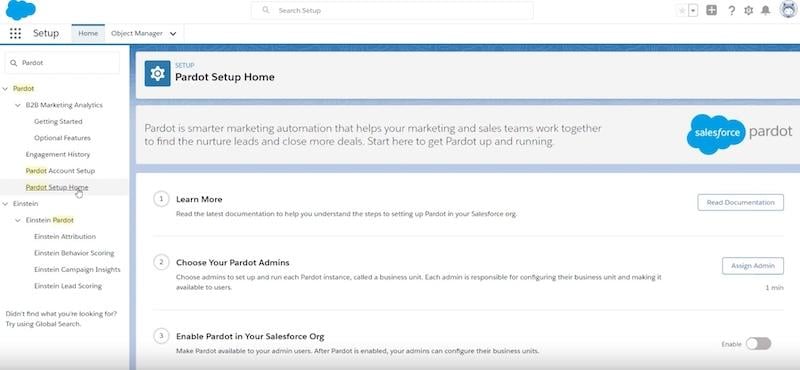
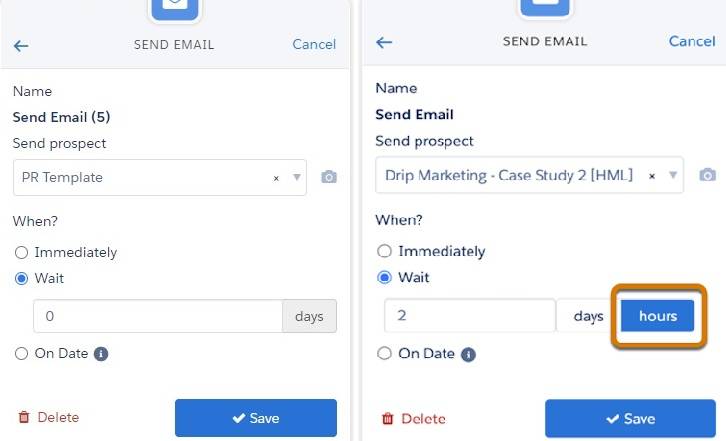
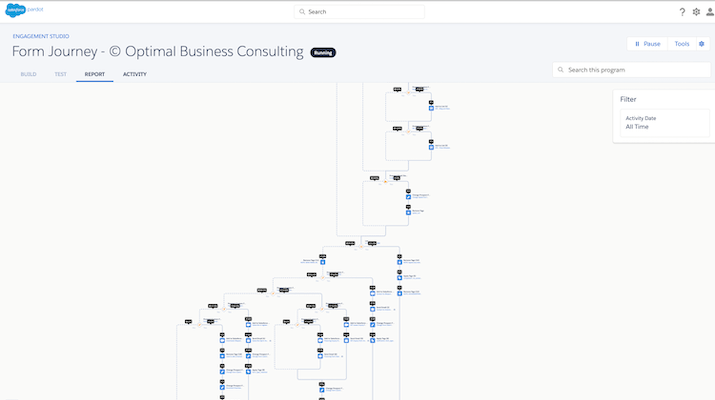
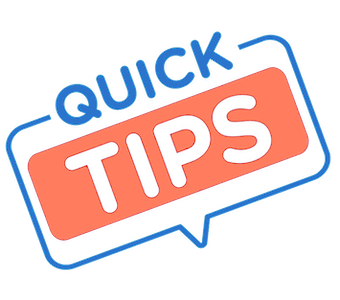
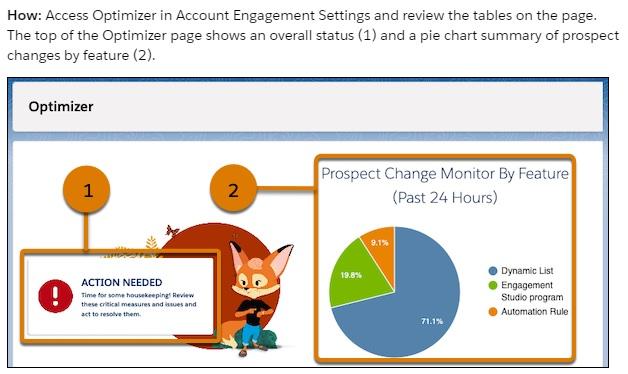
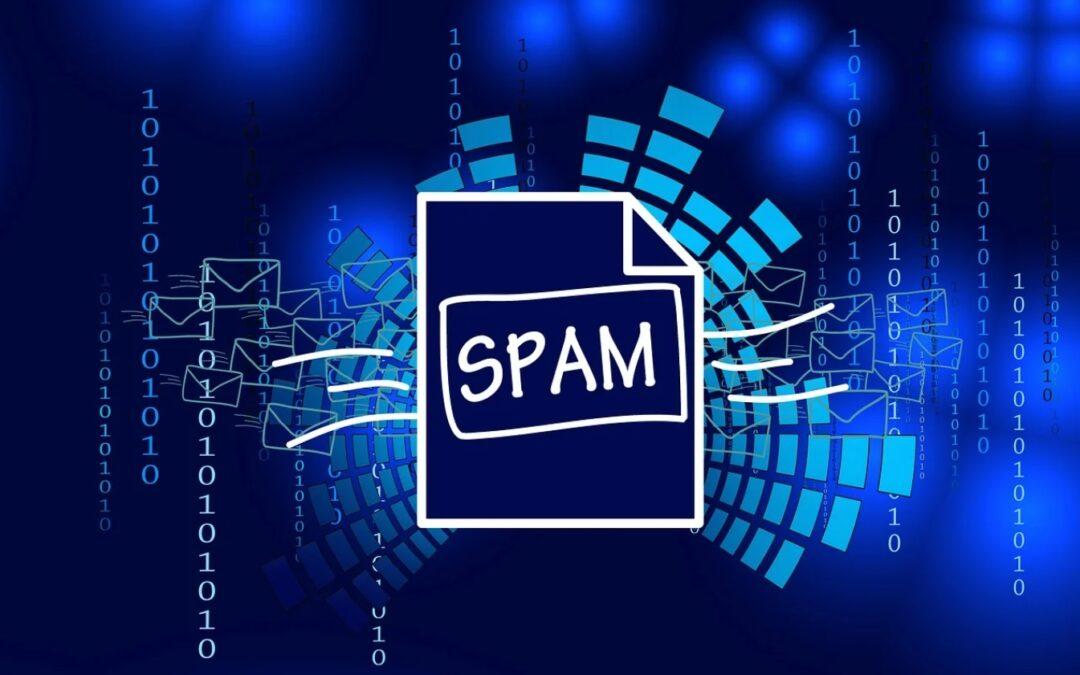
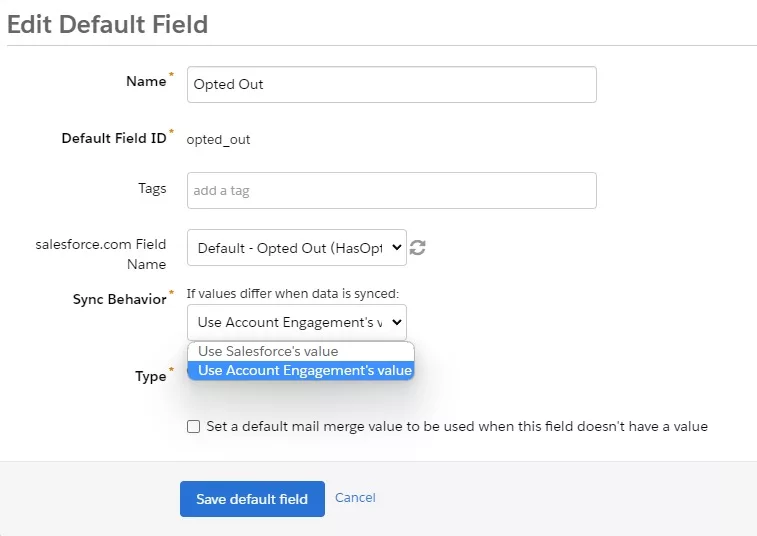



0 Comments